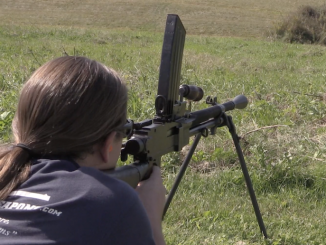“Swords of the Emperor” still available for discounted preorder – get your copy today!
https://www.headstamppublishing.com/swords
When Japan opened up to the outside world and began to industrialize in the late 1800s, it instituted major military reforms. In place of the samurai tradition, the new Japanese Imperial armed forces emulated the major European powers – France, Germany, and the United Kingdom. One element of this was the replacement of traditional swords with European styles for officers and civil officials.
These swords remained until the mid 1930s, when a wave of nationalist sentiment ran through Japanese society. In 1934, a new model of officer’s sword was adopted, which took the style of a traditional katana. A similar (but less fancy) model was adopted in 1935 for non-commissioned officers. These were the Type 34 and Type 35 respectively, and they are some of the most common Japanese swords in the United States, as many were brought back as souvenirs by American soldiers.
Today we are looking at my Type 95, using Headstamp’s upcoming book “Swords of the Emperor” as a guide.



Pondering military anachronisms, I wonder which Western nation designed and made the very last functional model of a military sword, meant for combat, not just for ceremonial duties? Was this the Polish wz. 1934?(I would not count several late models of Soviet shashkas here, as they were not truly new designs; just small bits and pieces modified compared to the tsarist models they evolved from).
Perhaps the US? They were definitely using the claymore through Vietnam.
https://en.wikipedia.org/wiki/Model_1913_Cavalry_Saber
The last U.S. Army issue sword intended for combat as opposed to ceremonial duties. Designed by then- Lt. George S. Patton Jr.
cheers
eon
Say it Ian. The Japanese butchered thousands and thousands of civilians in areas under their control. They also executed untold numbers of allied POWs. Swords were commonly used in these murders.
We’ve already known that swords were used for gruesome slaughters, but so were the various firearms and bayonets that the Japanese had on hand. Since when is one frontline weapon more guilty of murder than another weapon, if you’re so righteous? Are you not going to mention how many more civilians were machine-gunned to death than were chopped up with swords?
It might be even MORE fun to enquire into Stephen’s home country’s history in warfare, just to see what nasty things HIS people did to civilians and captured enemy soldiers over the years–some of them done with swords, of course. History, especially that of ‘civilized’ Europeans, is replete with examples of entire populations put to the sword, mass executions of surrendered prisoners after a battle, rapine and pillage that went on for literal decades.
How about it, there, Stephen? Got any skeletons in YOUR national closet that you wish to share with the rest of us? Don’t be shy.
The issue is, Japan was one of the select group of empires that actually was responsible for killing millions of conquered civilians. China + Vietnam + the Philippines by themselves should reach that threshold. And in the context of being an ally of the Nazis at that very moment, reflecting their roles as the leaders of global fascism, those dead were meant just to be the beginning. Swords were to the Japanese what Zyklon-B was to the 3rd Reich, with the common soldiers doing the deed personally instead of an elaborate bureaucratic machine to dilute responsibility.
And since I’m half-Japanese, I’m not covering up for myself.
Ian, can you do a video on the MG 81 aircraft mg from ww2?
I know of a superb collection of swords. A Japanese diplomat was allowed to view the collection. The diplomat noticed that one of the swords had a family crest. Soon the US State department was bombarded with requests that the sword be returned to Japan. Eventually the sword was returned only because the collections was now restricted to a very limited audience and we had learned our lesson. Losing a war of aggression should have everlasting consequences, even after both sides are now allies. Bearing the loss of a family heirloom is a good object lesson on the cost of national aggression because nations wage war, not just their armies. We are now friends, but we remember, and so should they.